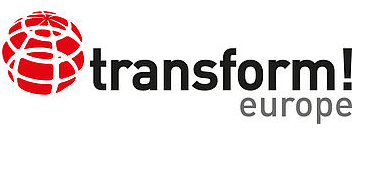transform! europe presents the results of the research programme on the economic intervention of nine European countries. An online panel in cooperation with Assoziation für Kritische Gesellschaftsforschung (AKG), an association of German-speaking social scientists.
Tuesday, 6 April 2021
16:00 – 17:30 (CET)
Language: English
After Covid-19 forced the European governments to shut down large areas of Europe’s economies in spring 2020, the European Commission altered two fundamental, and before the crisis supposedly ‘eternal’ and inviolable laws of the EU: first, the Stability and Growth Pact was temporarily suspended. Suddenly the Eurozone members could (in theory) incur as much public debt as they wanted to enable governments to support their ailing enterprises. To allow this, the EU Commission also suspended the ‘State Aid Rules’, the rules through whichthe Commission normally controls the support national governments give their national enterprises.
In the light of these unique measures, transform! europe initiated a research programme to examine the economic intervention of the following national governments: Germany, Italy, France, Spain, Portugal, Greece, Ireland, Poland, and the Czech Republic.
This then includes the four big EU states, along with Poland and the Czech Republic (which although outside the Eurozone are dependent on German value chains), the former Irish Tiger, and the southern Eurozone members.
The main research question is: what have the states done in 2020 to support their economies?
Focusing on demand and supply side measures and on where the money would be spent, the questions asked include: How far have the states used this unique opportunity to push for more sustainable economic structures? Are they pursuing vertical industrial policies or only the usual horizontal approaches? Everybody has talked about the revival of the ‘public’ and the need for state intervention. Have there, as a result, been plans to set up public enterprises?
And last but not least: what role did workers and their trade unions play in the development of the national plans? – In this context, we found hardly any inspiring plans for socio-economic transformations. All in all, it seems as if the public administrations, presented with the huge shock, fell back onto ‘established knowledge’ and not visionary thinking. We would like to present an overview of interventions across the EU and also an in-depth case study of Italy and then discuss our findings with the participants.
Panelists:
Roland Kulke (Germany) works for transform! europe in Brussels and coordinates the productive transformation working group of transform.
Matteo Gaddi (Italy) is currently engaged in trade union activities with CGIL. He is a member of the Board of Punto Rosso Cultural Association and of the Scientific Committee of Claudio Sabattini Foundation. His research areas concern the impacts on work deriving from industry 4.0 and work organization, GVC, industrial policy and public intervention in the economy and analysis of public policies.
Chair:
Stefanie Wöhl, Jean Monnet Chair “Diversity and Social Cohesion in the European Union”, University of Applied Science BFI Vienna
